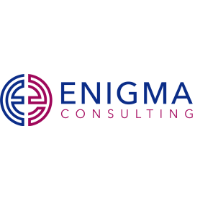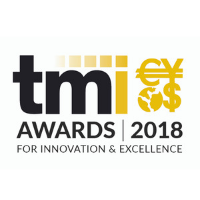| 02-10-2018 | ENIGMA Consulting |

Je zou kunnen denken dat alleen grote bedrijven een liquiditeitsplanning nodig hebben. Dit is echter niet waar. Of je nu een start-up bent, een klein groeiend bedrijf of een middelgrote onderneming op zoek naar innovatie, voor financiering en interactie met kredietverstrekkers is een liquiditeitsplanning erg belangrijk. Als je je nog niet eerder met liquiditeitsplanning hebt bezig gehouden, dan is het verstandig om verder te lezen.
Waarom is er een liquiditeitsplan nodig?
Effectieve liquiditeitsplanning is essentieel voor het succesvol managen van een bedrijf. Het biedt een gestructureerd overzicht van de belangrijkste inkomende en uitgaande geldstromen bij het bedrijf, normaal gesproken over een periode van één tot drie jaar. Er wordt onderscheid gemaakt tussen een liquiditeitsplan dat betrekking heeft op een fiscaal jaar en een liquiditeitsplan dat periodiek wordt aangepast om de laatste ontwikkelingen weer te geven. Een doorlopende planning wordt gebruikt om wijzigingen vast te leggen die bijvoorbeeld kunnen voortvloeien uit verkoop- en kostenvariaties voor de planningsperiode. Jaarlijkse en voortschrijdende plannen worden uiteindelijk vergeleken met werkelijke kasstromen met als doel de verschillen te analyseren en maatregelen te nemen om de liquiditeit te waarborgen.
Wat is het doel van liquiditeitsplanning? Naast het voor de hand liggende antwoord dat het projecties voor de komende maanden en jaren biedt, zijn er andere goede redenen voor liquiditeitsplanning.
- Basis voor deugdelijke bedrijfsbeslissingen door het management; een van de taken van een directeur is om niet alleen de financiële groei van het bedrijf in de gaten te houden maar ook de solvabiliteit. Een gestructureerd liquiditeitsplan is in dit opzicht een goed uitgangspunt en levert betrouwbare cijfers als basis voor elke strategische beslissing.
- Bewijs voor geldschieters en aandeelhouders; liquiditeitsplanning speelt ook een belangrijke rol bij het zoeken naar financieringsaanbieders om investeringen te doen, groei te financieren of nieuwe productideeën tot uitvoering te brengen. Een liquiditeitsplan kan de financier (bank or andere kredietverstrekker) aantonen hoe de liquiditeit de komende jaren naar verwachting zal evolueren – bewijsmateriaal dat keer op keer moet worden verstrekt en die voortschrijdende planning kan bieden. Nauwkeurige planning schraagt de reputatie van een bedrijf in de ogen van alle externe partijen – zowel kredietverschaffers als aandeelhouders.
Hoe ingewikkeld is liquiditeitsplanning nou?
Als je zelf op een financiële afdeling werkt en in het verleden te maken hebt gehad met liquiditeitsplanning, bent je waarschijnlijk maar al te bekend met de onderstaande problemen.
Je geeft planningssjablonen aan alle betrokkenen, maar alleen onvolledige informatie – of helemaal niets – wordt geretourneerd. Inzendingen zijn tegenstrijdig of bevatten een verscheidenheid aan eenheden en formaten. Voorgeschreven wisselkoersen worden niet gebruikt, er is geen coördinatie tussen operationeel verbonden eenheden, enzovoort. Als instructies te ingewikkeld zijn of de eisen te zwaar, worden entiteiten vaak overweldigd en gebruiken ze de informatie verkeerd.
Verschillende operationele struikelblokken komen dan snel naar voren. Als instructies niet volledig worden opgevolgd en informatie op verschillende manieren wordt geleverd, is het samenstellen van een plan een moeizame en langdurige exercitie. Gegevens moeten handmatig worden overgedragen, veronderstellingen nauwkeurig onderzocht en indelingen gewijzigd. Een hoge mate van betrokkenheid is vereist als je je aan bepaalde tijdsbestekken wil houden en wil voorkomen dat de gegevens waaraan je werkt worden vervangen door recentere gegevens. Handmatige invoer moet ook door een andere persoon worden gecontroleerd om fouten te voorkomen. Vertragingen worden vaak verwacht en ingebouwd in het schema.
Processen zijn dus ongecontroleerd en inefficiënt en alle partijen verliezen momentum. Het resultaat is vaak een liquiditeitsplan op basis van gegevens die verouderd zijn en dus uiteindelijk onbetrouwbaar.
Hoe kan ik een liquiditeitsplanning eenvoudiger opstellen?
In het tijdperk van digitalisering en globalisering is een voor de hand liggend antwoord op het verbeteren van de efficiëntie en het verbeteren van de onderliggende gegevens het gebruik van software – idealiter een bedrijfsbreed platform waartoe alle relevante werknemers toegang hebben en dat in realtime betrouwbare gegevens levert.
Maar niet alle bedrijven willen dit pad volgen. In plaats daarvan willen vooral kleine en middelgrote ondernemingen een stap verder gaan en herhalende, tijdrovende taken helemaal elimineren.
Ze schrikken terug voor de tijd en moeite die het kost om te investeren in een Treasury implementatie project; ze hebben geen personeel beschikbaar. Ze willen zich gewoon op de business concentreren, zonder een langdurig project te beginnen en nieuwe medewerkers aan te nemen en op te leiden.
Dit zijn allemaal redenen om een deel of de volledige verantwoordelijkheid voor de genoemde problemen over te dragen aan een professionele dienstverlener, bijvoorbeeld door een uitbestedingsoplossing zoals Treasury as a Service (TaaS) van ENIGMA te gebruiken. Vooral als het gaat om liquiditeitsplanning, is er een enorm potentieel om resources te sparen en tegelijkertijd de nauwkeurigheid van gegevens en planningsmogelijkheden te verbeteren.
Kan ik de liquiditeitsplanning outsourcen?
Natuurlijk kunnen wij de liquiditeitsplanning verzorgen. Wij bieden bedrijven een service die liquiditeitsplanning en andere duidelijk omschreven diensten zoals financiële status, betalingen, cash pooling en verrekening op een professionele, veilige en betrouwbare manier verstrekt en ondersteunt. We noemen het Treasury as a Service (TaaS). TaaS biedt een professionele service die het planningsproces bij het bedrijf duidelijk structureert en beheert en daarmee de planningsbetrouwbaarheid binnen het bedrijf verbetert. Transparantie en zichtbaarheid nemen toe, waardoor de reputatie van het bedrijf bij banken wordt versterkt.
Hoe werkt liquiditeitsplanning met TaaS?
ENIGMA zorgt voor alle essentiële vereisten. Wij bieden web based toegang tot een applicatie en wij bieden gecertificeerde hosting- en datacenterprocessen die de nodige beveiliging garanderen. Geen handmatige gegevensverzameling via verschillende communicatiekanalen en de vervelende analyse van gegevens. Verdwenen is ook de onzekerheid over de bron van informatie en de vraag of gegevens wel up-to-date zijn.
ENIGMA biedt een gestandaardiseerd planningsplatform waarop alle bedrijfsonderdelen planningsgegevens kunnen invoeren in overeenstemming met standaard procesinstructies. Het planningsproces is gedocumenteerd door ENIGMA en voldoet daarmee aan essentiële nalevingsvereisten zoals die door het bedrijf zijn opgesteld. Planningssjablonen zijn gestandaardiseerd en gebaseerd op de uitgebreide ervaring van de ENIGMA-consultants. Er worden neutrale categorieën gebruikt die relevant zijn voor elk bedrijf. Planning wordt uitgevoerd op basis van een jaarplan of op maandelijkse basis waarbij wordt uitgesplitst naar valuta. We stellen deadlines voor het hele proces met behulp van onze planningskalender. Nadat de periode voor het invoeren van planningsgegevens is beëindigd en interne coördinatie heeft plaatsgevonden om consistentie te waarborgen, kunnen alle partijen onmiddellijk aan verschillende analyses beginnen. De verschillende plannen kunnen worden vergeleken met de feitelijke situatie of met elkaar en worden onderzocht op verschillen.
Het hoofdkantoor kan geconsolideerde analyses uitvoeren en waardevolle informatie uit de rapporten verkrijgen die nodig is voor financierings- of hedgingbeslissingen. Rolling-planning toont snel veranderingen in de tijd en maakt onmiddellijke interventie mogelijk met gerichte maatregelen. Dit vermindert de blootstelling van het bedrijf aan financiële risico’s.
Wij zorgen voor de handmatige, operationele klussen en het kader; jij houdt je bezig met gegevensinvoer en -analyse. Je hebt een solide basis voor het uitvoeren van verder strategisch werk.

Frits Touw
Associate at ENIGMA Consulting















